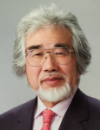Norio Nakatsuji, Professor Emeritus, Kyoto University and Chief Advisor, Kyoto Stem Cell Innovation
Professor Nakatsuji is a graduate from Kyoto University. He obtained postdoctoral training in Sweden, USA and UK. He became a professor at National Institute of Genetics in 1991. In 1999, He moved to the Institute for Frontier Medical Sciences at Kyoto University, which was reorganized for regenerative medicine. His laboratory established monkey ES cell lines in 2000. Since 2003, his group has established 5 human ES cell lines (KhES1-5) and distributed them for research purposes. Since 2007, he is the founding director of Kyoto University’s Institute for Integrated Cell-Material Sciences (iCeMS), an institute which aims to advance cross-disciplinary research and technological innovation based on cell biology, chemistry and physics. Recently, he is focusing on making the best use of hESC/hiPSC lines for drug discovery and cell therapy by multidisciplinary research utilizing chemical compounds and functional materials. His research group has created and investigated neurodegenerative disease model cells, such as Alzheimer, ALS and Huntington disease models. Also, they are working on control of stem cells with chemical compounds and materials for growth and differentiation of ES/iPS cells, and they have identified novel small molecules which can induce efficient and robust cardiomyocyte differentiation from many human ES and iPS cell lines in completely defined and xeno-free conditions. Most recently, they are developing novel technologies for large-scale production of high-quality human pluripotent stem cells using 3D-culture system. It is a government-supported project and carried out by collaboration between several technology-oriented companies and academic groups. |





